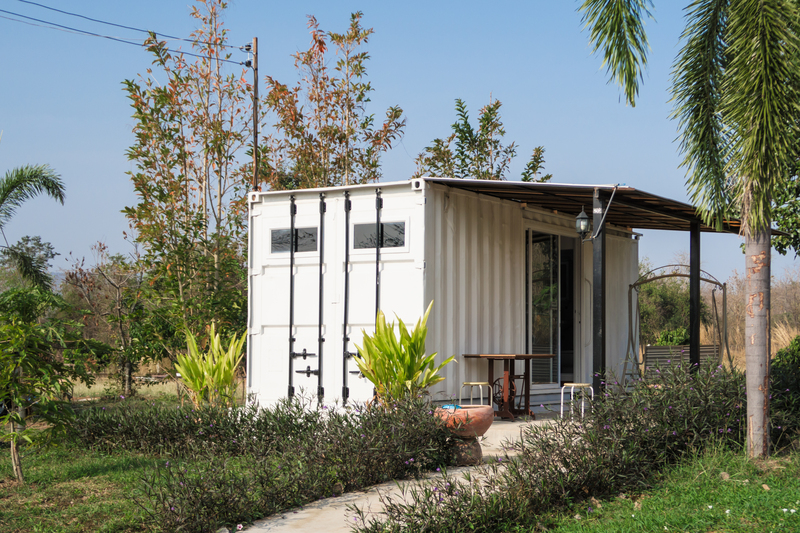In today's fast-paced world, food waste has become a gargantuan issue, particularly in the restaurant industry. An estimated 1.3 billion tons of food is wasted globally each year, with eateries being a significant contributor. This not only poses a threat to the environment but also impacts the economy and food security. Revolutionary solutions in food waste recycling for eateries are proving to be a game-changer. Let's explore how implementing these innovative methods can benefit both businesses and the planet.
The Importance of Food Waste Recycling
Food waste is not just about throwing away leftovers; it's about the inefficiency in the food supply chain and the negative impacts it has on the environment. Landfills are overwhelmed, and the decomposing food produces methane--a potent greenhouse gas. Therefore, finding effective solutions becomes imperative not only for environmental conservation but also for tackling issues related to resource waste.

Benefits of Food Waste Recycling for Eateries
- Cost Savings: Implementing recycling and composting practices can significantly cut down waste disposal costs.
- Environmental Impact: Reducing landfill contributions and greenhouse gas emissions helps fight climate change.
- Public Image: An eatery focusing on sustainable practices enhances its reputation and can attract more eco-conscious customers.
- Resource Conservation: Recycling food waste can help recover nutrients and energy, cultivating a sustainable cycle.
Revolutionary Techniques in Food Waste Management
Eateries are now exploring a variety of innovative strategies to address food waste. Let's delve into some cutting-edge techniques that are transforming the landscape of food waste recycling.
Composting: Nature's Way of Recycling
Composting is one of the oldest methods of recycling organic waste, taking advantage of natural decomposition processes. Many modern eateries are integrating on-site composting systems that enable the transformation of food scraps into nutrient-rich soil enhancers.
- Utilizing aerobic composting techniques can significantly reduce the volume of food waste.
- Compost produced can be used in local community gardens, further enhancing sustainability efforts.
- Eateries can partner with local composting facilities for larger scale operations.
Food Waste-to-Energy: A Sustainable Innovation
Another revolutionary method gaining traction is the conversion of food waste into energy. Technologies such as anaerobic digestion and biogas production take organic waste and turn it into sustainable energy resources.
- Anaerobic digesters convert food waste into biogas, which can be used as a source of renewable energy.
- Biogas production can be integrated into the energy systems of the eatery, reducing reliance on traditional fossil fuels.
- This not only helps reduce carbon footprints but also cuts down on energy costs.
Advanced Recycling Technologies
Technological advancements have ushered in an era of sophisticated recycling solutions that can be tailored to the specific needs of an eatery.
- Automated food waste separators help categorize waste efficiently and accurately, ensuring that recyclable materials are not mixed with general waste.
- Dehydration units minimize the volume and weight of food waste, making it easier to handle and transport.
- Utilizing smart technology systems for waste tracking, which can help in understanding and optimizing waste management processes.
Steps for Eateries to Implement Food Waste Recycling
Integrating food waste recycling strategies into daily operations requires careful planning and execution. Here is a step-by-step approach to help eateries embark on this sustainable journey:
Conduct a Food Waste Audit
Before implementing any recycling strategy, it's crucial to understand the volume and type of waste generated. A thorough food waste audit can provide insight into waste patterns and highlight areas for improvement.
Develop a Comprehensive Plan
Once a clear understanding of waste patterns is established, eateries should design a comprehensive waste management plan that outlines goals, responsibilities, and timelines. The plan should cover aspects such as:
- Waste reduction targets and timeline for achieving them.
- Selection of recycling and composting methods suitable for the eatery.
- Employee training and involvement to ensure widespread adoption of sustainable practices.
Partner with Local Waste Management Services
Collaboration with local waste management services can enhance the efficiency of food waste recycling efforts. These partners can offer expertise and resources that can assist eateries in reaching their recycling goals.
Implement and Monitor the Program
Implementation should be followed by continuous monitoring to ensure the effectiveness and efficiency of the waste management system. Regular assessment allows for iterative improvements and helps in achieving desired sustainability outcomes.

Overcoming Challenges in Food Waste Recycling
Despite the benefits, there are challenges involved in implementing food waste recycling in eateries. Some of these include:
- Initial Costs: The setup costs for recycling systems can be prohibitive for smaller eateries.
- Space Constraints: Limited space in urban restaurants may make on-site recycling systems challenging.
- Change Management: Ensuring that all employees follow new processes requires robust training and consistent management support.
Conclusion: A Sustainable Future for Eateries
The revolution in food waste recycling is paving the way for a more sustainable future for eateries and the environment. By embracing innovative methods and practices, eateries can play a significant role in reducing food waste and promoting circular economies. As technology and societal values continue to advance, adapting to such sustainable strategies will not only help eateries thrive in the business world but also contribute positively to the global ecosystem.
Adopt food waste recycling solutions today and become part of the change for a better tomorrow!